![]()
Sat, Jan 01 2011 | The Guardian: Document 1 and Document 2

Pope Benedict XVI seen here with Turkish prime minister Recep Tayyip Erdogan in Ankara in 2006 during his four-day trip to Turkey
WikiLeaks: Pope Wanted Muslim Turkey Kept Out of EU
In 2004 Cardinal Ratzinger, the future pope, spoke out against letting a Muslim state join, although at the time the Vatican was formally neutral on the question.
The Vatican’s acting foreign minister, Monsignor Pietro Parolin, responded by telling US diplomats that Ratzinger’s comments were his own rather than the official Vatican position.
The cable released by WikiLeaks shows that Ratzinger was the leading voice behind the Holy See’s unsuccessful drive to secure a reference to Europe’s “Christian roots” in the EU constitution. The US diplomat noted that Ratzinger “clearly understands that allowing a Muslim country into the EU would further weaken his case for Europe’s Christian foundations”.
But by 2006 Parolin was working for Ratzinger, now Pope Benedict XVI, and his tone had distinctly chilled. “Neither the pope nor the Vatican have endorsed Turkey’s EU membership per se,” he told the American charge d’affaires, “rather, the Holy See has been consistently open to accession, emphasising only that Turkey needs to fulfil the EU’s Copenhagen criteria to take its place in Europe.”
But he did not expect the demands on religious freedom to be fulfilled: “One great fear is that Turkey could enter the EU without having made the necessary advances in religious freedom. [Parolin] insisted that EU members – and the US – continue to press the [Turkish government] on these issues … He said that short of ‘open persecution’, it couldn’t get much worse for the Christian community in Turkey.”
Read related article “Pope wanted Muslim Turkey kept out of EU” in the Guardian here.
Source: WikiLeaks
Wednesday, 18 August 2004, 16:27
C O N F I D E N T I A L VATICAN 003196
SIPDIS
DEPT FOR EUR/WE: LEVIN; EUR/SE; EUR/ERA
EO 12958 DECL: 08/18/2014
TAGS EU, PHUM, PREL, SOCI, TU, VT
SUBJECT: VATICAN STILL OPEN TO TURKEY’S EU BID
REF: A. 03 VATICAN 1164
B. 03 VATICAN 5666 C. 03 VATICAN 5748
Classified By: Charge d’affaires D. Brent Hardt. Reasons 1.5 (b) and ( d).——-
Summary
——-
1. (C) Acting Holy See Foreign Minister Parolin reaffirmed August 18 that the Holy See remained open to Turkish EU membership, notwithstanding recent critical comments by Cardinal Joseph Ratzinger. Parolin emphasized that the Holy See’s position on Turkish membership in the EU had not changed from the stance it has described to us in the past (ref a). If Turkey meets the EU’s Copenhagen criteria, Parolin said, the Vatican sees “no obstacle” to EU membership. He clarified that Ratzinger’s skeptical view of EU membership for Turkey reflected the Cardinal’s “personal feeling,” and did not reflect the view of the Holy See. Parolin acknowledged that some within the Holy See harbored concerns about Turkey’s EU bid and its potential impact on the EU, but maintained that he believed these concerns could be addressed over time, and would not represent insurmountable obstacles. He acknowledged that Ratzinger’s statement was incorrectly seen as a Vatican position, and indicated a willingness to consider clarifying its formal position pending discussions with the Turkish Ambassador — who had yet to raise the issue — and with FM Lajolo on his return to Rome later this month. End Summary.
——————————————–
Holy See Still Open to Turkish EU Membership
——————————————–
2. (C) Acting Vatican Foreign Minister equivalent Monsignor Pietro Parolin told Charge August 18 that the Holy See remained open to Turkish EU membership. He affirmed that recent negative comments about Turkey’s EU bid by Cardinal Joseph Ratzinger did not reflect any change in the Holy See’s formal position. That position remained that, if Turkey fully meets the EU’s Copenhagen criteria, the Vatican sees “no obstacle” to EU membership. Parolin made it clear that Ratzinger’s take on the issue was his own, and that he was not speaking on behalf of the Holy See. “These were his personal feelings,” Parolin added. “Although he is an important member of the Curia, he does not speak for the Secretariat of State.”
SIPDIS
——————————————— ——–
Turkey’s EU Bid: Complexities, but no Great Obstacles
——————————————— ——–
3. (C) While Parolin discounted Ratzinger’s comments — that Turkey had always been “in permanent contrast to Europe” and that linking it to Europe would be a mistake — as not reflective of Vatican foreign policy, he did allow that EU membership for Turkey would present challenges. He noted the difficulty of European integration for a country with such a different cultural and religious background, citing existent problems with the integration of Muslims into European society as reason for caution when examining Turkey’s EU hopes. He acknowledged that there were others, including former FM Cardinal Tauran, who share Ratzinger’s concerns. Tauran had suggested the EU look first to Orthodox Christian countries Ukraine and Moldova before addressing Turkey’s membership. Parolin affirmed that the Holy See’s primary concern with Turkey’s EU bid remained religious freedom, particularly the juridical status of churches in Turkey (ref a). In his view, the “difficulties and complexities” did not represent an insurmountable obstacle for Turkey’s EU membership, but rather necessary topics of reflection that would have to be addressed before moving forward on accession.
———————————-
At Odds with Papal Muslim Outreach
———————————-
4. (C) Charge pointed out that as an EU member, Turkey could help to ease tensions between the Western and Muslim worlds, illustrating how a secular state with a Muslim population could cooperate with countries with a Judeo-Christian heritage. He noted that the Pope, in his outreach to the Muslim world, has constantly preached the doctrine of inclusion and integration, even while advocating recognition of Europe’s Christian roots. Ratzinger’s comments, by contrast, suggested a permanent state of conflict and division that appeared to run counter to the Pope’s broader
outreach to the Muslim world, the Charge observed. Parolin acknowledged this contradiction, and indicated that he believed it was possible that Turkish EU membership could eventually help the Christian minority and others suffering from a lack of religious freedom in Turkey. “We certainly hope for that development,” he concluded. Charge also pointed out that Turkey has for decades been an important member of NATO that had contributed significantly to the organization’s success; there was no reason why it could not contribute equally to the EU.
———————-
Clarification Possible
———————-
5. (C) Charge noted the public confusion generated when a senior Vatican official as influential as Cardinal Ratzinger makes a political statement on such a sensitive issue, and emphasized the importance of clarifying its official position. In this regard, Charge passed Parolin an account of Turkish Prime Minister Tayyip Erdogan’s sharply critical response to Ratzinger’s comments, including the strong reaction by the Turkish and American media. Parolin had not yet seen Erdogan’s comments, and appeared concerned by their bluntness. He also indicated his surprise that the Turkish Ambassador had not yet contacted him, though he said it was possible the Ambassador was on summer leave. Parolin indicated that he would wait to hear the Turkish reaction, and would then discuss with FM Lajolo the possibility of issuing some form of clarification of the Vatican’s stance.
——-
Comment
——-
6. (C) As we saw most notably during the Iraq war when individual Cardinals offered personal criticism of USG policy (refs b, c), the media often characterizes the personal views of high-ranking prelates as “Vatican” stances. In this case, Ratzinger’s lofty stature in matters of Catholic theology made the temptation to do so even greater. In fact, Ratzinger’s influence in matters of faith and morals does not translate into direct influence upon Vatican foreign policy, where his expertise is much more limited. Ratzinger has been a leading voice behind the Holy See’s unsuccessful drive to secure a reference to Europe’s “Christian roots” in the EU constitution, and he clearly understands that allowing a Muslim country into the EU would further weaken his case for Europe’s Christian foundations. In any case, the Vatican’s official position remains one of cautious, skeptical openness towards Turkish integration to the EU. In fact, the Pope, in his February address to Turkish Ambassador Durak essentially acknowledged Turkey’s future in Europe, telling Durak that “as Turkey prepares to establish new relations with Europe,” the Church would insist on “fundamental human rights” for Turkish Catholics.
HARDT
NNNN
2004VATICA03196 – Classification: CONFIDENTIAL
Source: WikiLeaks
Thursday, 07 December 2006, 17:58
C O N F I D E N T I A L SECTION 01 OF 02 VATICAN 000256
SIPDIS
SIPDIS
DEPT FOR EUR/WE LARREA
EO 12958 DECL: 12/7/2016
TAGS SOCI, PHUM, TU, VT
SUBJECT: TURKEY: VATICAN BACKS INTEGRATION
REF: A. A: VATICAN 249
B. B: ANKARA 6593, ET AL.
VATICAN 00000256 001.2 OF 002
CLASSIFIED BY: Peter Martin, Pol/Econ Chief, Vatican, State. REASON: 1.4 (b), (d)————
Summary
————
1. (C) While not officially endorsing Turkey’s entry into the EU (ref a), the Holy See continues to support the dialogue and reform process connected to the issue. Top officials, including the pope, have spoken positively in public and private about European integration. Although they are critical of the religious freedom situation in Turkey, officials recognize that the EU entry process offers an opportunity to bring Turkey along on these matters. In his December 6 audience, the pope expressed emphasized his hope that Turkey would be a “bridge of friendship and of fraternal cooperation between the East and West.” Post continues to engage on the issue, focusing on the opportunity presented by integration and EU entry to ameliorate the situation for Catholics and other Christians in Turkey. A high-level visit from the Department could be very helpful in highlighting the matter for the Holy See and eliciting further useful public and private comments. Please see paragraphs 5-6 for action request.
———————-
“Positive” Process
———————-
2. (C) Holy See Undersecretary for Relations with States (Deputy FM equivalent) Pietro Parolin told the Charge December 6 that the Holy See continues to support the “positive” process of dialogue and reform connected to Turkey’s EU bid . (Recent public statements from other Holy See officials have borne a similar positive message on European integration.) The Vatican’s position on Turkey’s EU accession has not changed (ref a), despite inaccurate media reports following Pope Benedict’s meeting with PM Erdogan . In fact, neither the pope nor the Vatican have endorsed Turkey’s EU membership per se; rather, the Holy See has been consistently open to accession, emphasizing only that Turkey needs to fulfill the EU’s Copenhagen criteria to take its place in Europe. If that occurs, Parolin reiterated, “we would see no obstacle” to Turkey’s joining the EU — a development which, he agreed, has the potential to promote greater rights for religious minorities in Turkey.
———
Caveats
———
3. (C) Parolin does have some concerns about the situation. One great fear is that Turkey could enter the EU without having made the necessary advances in religious freedom. He insisted that EU members – and the U.S. – continue to press the GoT on these issues. We noted that the continuing dialogue and process for EU entry provide just such a forum for this pressure, and cautioned that deadlines and ultimatums would be counterproductive — robbing Turkey of a powerful incentive to enact needed reforms, and depriving the West of valuable leverage on the issue. Parolin took the point, but said that short of “open persecution”, it couldn’t get much worse for the Christian community in Turkey, where limited property rights and other factors have left Christians enjoying “freedom of belief, but hardly a full freedom of religion”. Other Vatican officials expressed disappointment to us over President Sezer’s veto of nine articles of the recently passed Foundations Law affecting religious minorities (ref b). Parolin noted that a list of particular problems — outlined in a document put out by the Turkish Catholic bishops two years ago — remains valid today as an explanation of the troubles Catholics face in Turkey.
———————–
Pope Speaks Again
VATICAN 00000256 002.2 OF 002
———————–
4. (C) Parolin confirmed that the pope’s trip to Turkey had been very positive for inter-religious relations. The “tense atmosphere” in Turkey preceding the visit may have eased somewhat. With regard to Erdogan’s incorrect assertion that the pope had expressed his specific support for Turkey’s EU membership, Parolin expressed certainty that the PM hadn’t misunderstood the pontiff; but probably just wanted to get some good media coverage from the meeting. The pope expressed the “same position we have always had”, though perhaps in a “nicer way”. The general message from the Holy See on the issue, in any case, has been positive. At his weekly audience December 6, the pope expressed his hope for “joint Christian and Muslim action on behalf of human rights” and emphasized his hope that Turkey would be a “bridge of friendship and of fraternal cooperation between the East and West.”
————————————
Comment and Action Request
————————————
5. (C) The Holy See will not officially endorse Turkey’s EU entry, but positive comments from the pope and other officials in support of the dialogue and reforms that are part of integration and the entry process receive a lot of play in the European media. The pope’s Regensburg speech , which made clear that he is not naove about the challenges presented by Islam, gives added heft to his favorable words on Turkey. Private comments from Vatican officials to European diplomats here also carry some weight – particularly in the traditionally Catholic countries. Our emphasis on using integration and EU entry as an opportunity to make life better for Christians in Turkey, will resonate with the Vatican, and could lead to more Holy See action, both public and private. Despite Parolin’s insistence that those in favor of Turkey’s EU entry must do more to push for reforms, he is on the same page with us on the overarching issue: in essence, both Turkey and Europe need to see diversity as a strength, not a threat.
6. (C) At this critical juncture we have an opportunity to catalyze a more active Holy See voice on Turkey. We hope a senior Department official such as A/S Fried or DAS Bryza can visit in the near future to highlight the matter for the Holy See and encourage them to do more to push a positive message on Turkey and integration. SANDROLINI



 RSS
RSS


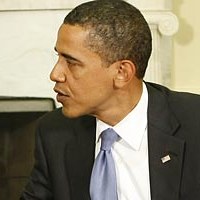
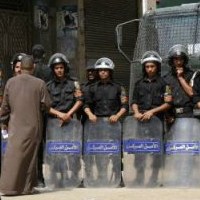
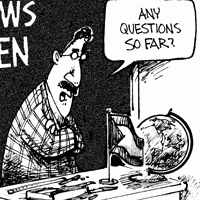
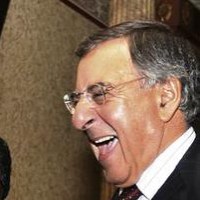
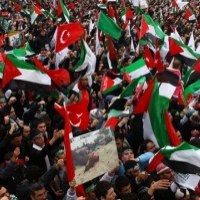




#WikiLeaks: #Pope Wanted #Muslim #Turkey Kept Out of #EU | #Cablegate #Vatican http://j.mp/gEmSKq
RT @CrethiPlethi: #WikiLeaks: #Pope Wanted #Muslim #Turkey Kept Out of #EU | #Cablegate #Vatican http://j.mp/gEmSKq